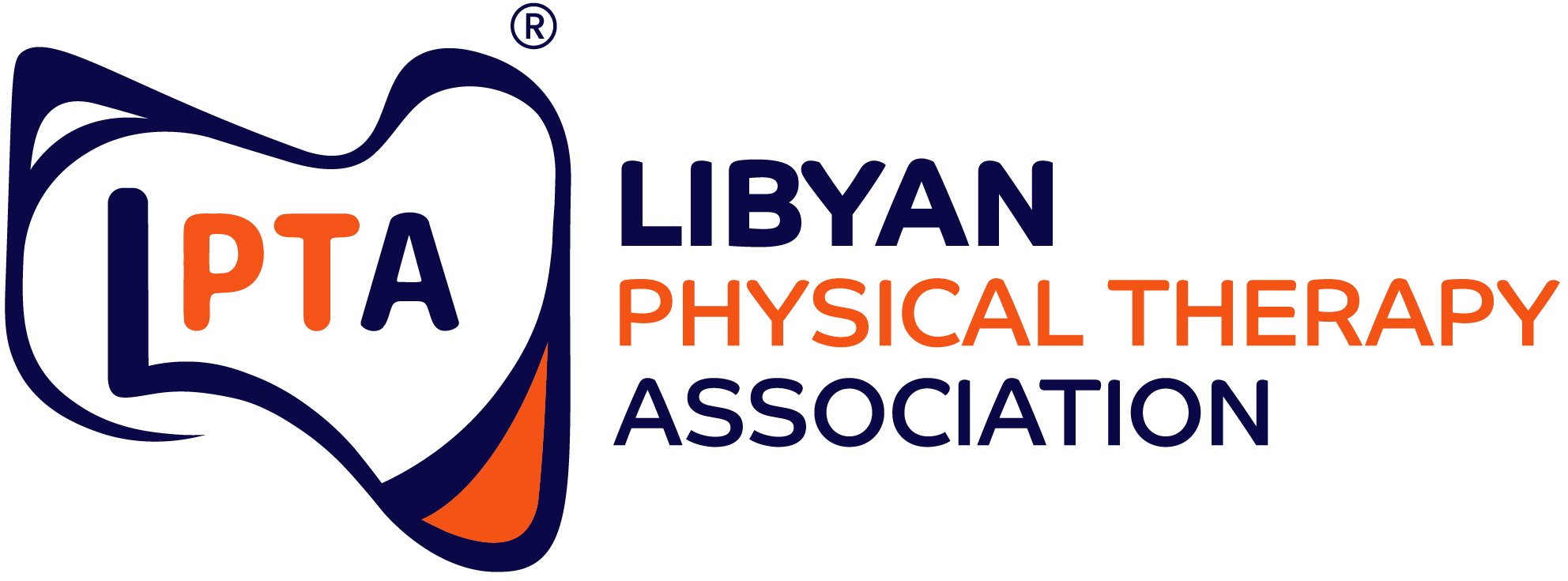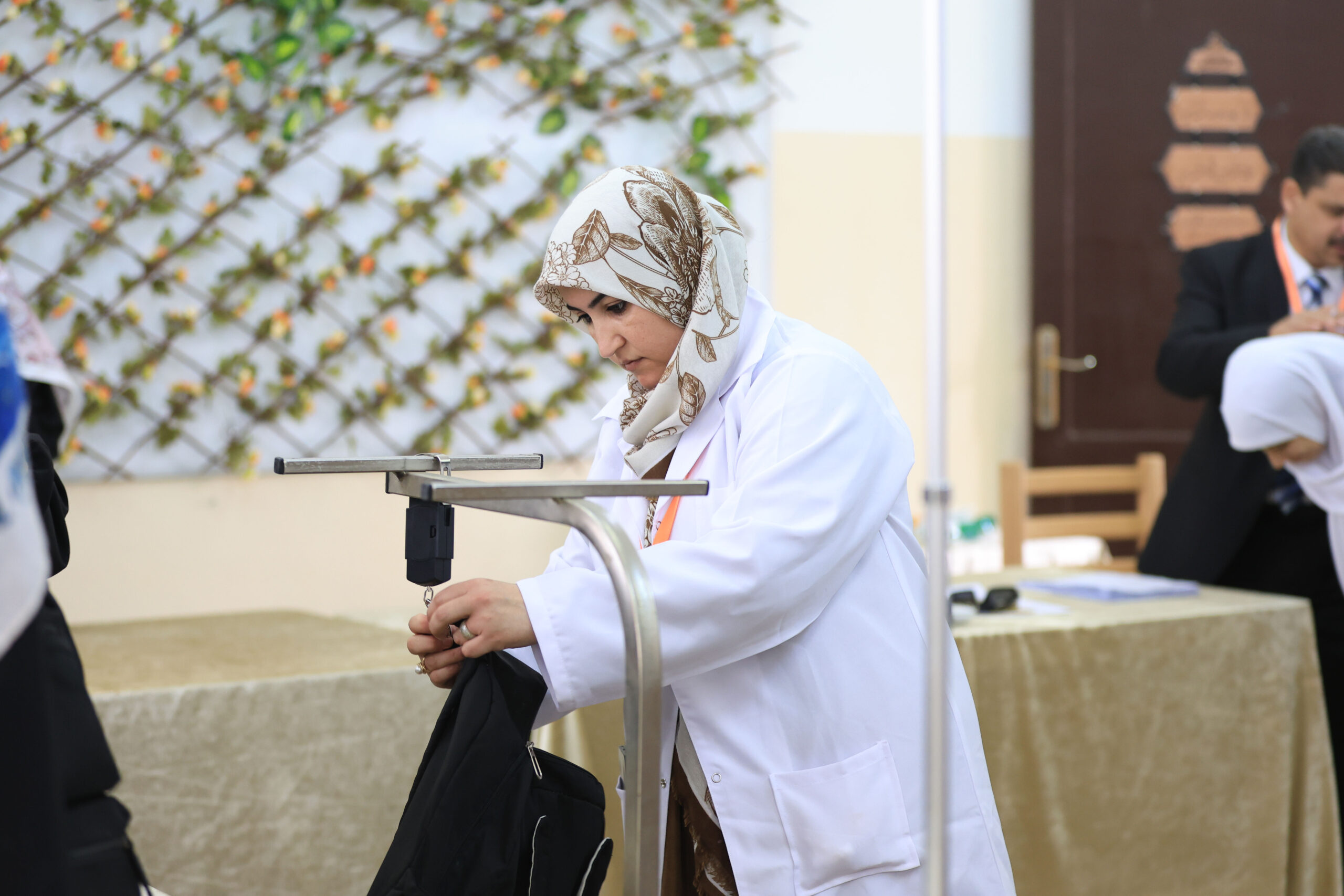The specialized physiotherapy team, assigned by the Libyan Physical Therapy Association, is pleased to share the final report of a study conducted on 1,012 students from 11 schools within the Misrata Municipality.
The study revealed that 24.65% of the students suffer from musculoskeletal pain, primarily in the back and shoulders, along with other health issues linked to the weight of school bags. These findings highlight the significant negative impact of heavy school bags on children’s health and posture, emphasizing the need for urgent and serious attention to this issue.
The results also showed that 41.16% of students carry bags that fall within the critical range (10%-15% of their body weight), while 24.06% exceeded the recommended safe limit (>15%). This widespread problem poses a potential risk of long-term health consequences, affecting children’s growth and overall well-being.
Effective measures should address this issue, such as reducing bag weights, designing ergonomic school bags, and raising awareness among parents, teachers, and decision-makers. Addressing this problem will significantly protect children’s physical health, enhance their quality of life, and support their academic progress.
Additionally, the analysis indicated that the excess weight of school bags is not limited to books and school supplies but also includes other items children carry daily, such as water bottles and lunch boxes. Remarkably, some empty bags already exceed the recommended ideal weight, burdening children and directly affecting their health and posture.
In light of these findings, the Libyan Physical Therapy Association recommends adopting immediate measures to reduce the overall weight of school bags. We also propose forming a joint task force comprising the association, the Education Directorate, and specialized experts to ensure the implementation of these recommendations and monitor their impact effectively.
Recommendations by the Libyan Physical Therapy Association to Reduce Schoolbag Weight
General Recommendations:
Innovative Curriculum Division:
- Split each subject into smaller parts, where each part covers a single chapter.
- Combine the chapters from all subjects into one book, ensuring students carry only one book per chapter phase.
- This approach ensures teachers complete the syllabus on time, as students only move to the next book after finishing the current one.
Revising the Curriculum:
- Redesign the curriculum to align with the shorter school hours in Libya.
Introducing Technology:
- Pilot the use of iPads instead of textbooks by providing devices designed specifically for educational purposes.
- Conduct this as a trial in one school, with the possibility of expanding based on the results.
Reintroducing Class Teacher System:
- Assign one teacher to handle all core subjects for early grades (1st to 3rd), while delaying subjects like Computer Science and English until 5th grade to ensure the plan’s success.
Providing In-Class Storage:
- Equip classrooms with lockers so students can store books and materials they don’t need at home, reducing the weight of their bags.
Awareness Campaigns:
- Organize awareness sessions for parents on choosing appropriately designed schoolbags.
- Distribute brochures to schoolbag retailers, encouraging them to stock ergonomically designed bags.
Reducing Daily Items:
- Advise parents to select lightweight water bottles and lunch boxes suitable for daily use.
Schoolbag Weight Monitoring:
- Provide each school with a weighing scale to monitor the combined weight of the bag, water bottle, and lunch box.
- Conduct regular checks every three months to ensure compliance with the recommended weight (10%-15% of the child’s body weight).
Enhancing Physical Education in Schools:
- Allocate sufficient time weekly for physical activities to improve students’ fitness and muscle strength.
- Include exercises to strengthen the back, abdomen, and shoulders, reducing injury risks from carrying heavy bags.
- Teach students proper bag-carrying techniques, such as distributing weight evenly on both shoulders and using adjustable, padded straps.
Specifications for Schoolbags (According to Global Standards):
Size and Weight:
- Empty bag weight should not exceed 5% of the child’s body weight.
- The size must suit the child’s age and build.
Straps:
- Include padded, wide (4-5 cm) adjustable shoulder straps to keep the bag centred on the back.
- A chest or waist strap is recommended for even weight distribution.
Back Support:
- Well-padded to support the spine, with breathable material to prevent sweating.
Internal Compartments:
- Designed to distribute weight evenly, placing heavier books close to the back.
- Additional pockets for personal items and water bottles.
Material:
- Lightweight, water-resistant, and durable materials with reflective elements for safety.
Recommendations for Water Bottles:
Weight:
- Lightweight material (safe plastic or light aluminium).
- The filled bottle weight should not exceed 150 grams.
Capacity:
- Between 350-400 ml to avoid excessive weight.
Material:
- Made of non-toxic, BPA-free materials that are heat-resistant and leakproof.
Ease of Use:
- Easy to open and close with a child-friendly drinking spout.
Maintenance:
- Dishwasher-safe, easy to clean, and bacteria-resistant.
Recommendations for Lunch Boxes:
Weight:
- Lightweight, not exceeding 150 grams empty.
Size:
- Medium-sized to fit a balanced meal.
Material:
- BPA-free, food-grade plastic or stainless steel, resistant to breaking and suitable for daily use.
Lid:
- Securely sealed to prevent spills but easy for children to open.
Internal Design:
- Compartmentalized to separate foods and may include insulation to maintain food temperature.
Compact Design:
- Small enough to fit comfortably in the school bag.
Immediate Actions:
Teacher and Health Supervisor Monitoring:
- Correct students’ sitting postures in classrooms.
- Ensure students follow the timetable without carrying unnecessary items.
Regular Bag Inspections:
- Use weighing scales in schools to check bag weights quarterly.
- Ensure compliance with the recommended weight range.
Awareness for Parents and Students:
- Educate on the dangers of heavy school bags.
- Provide practical tips to reduce excess bag weight.
Additional Initiatives:
- Form a task force involving the association, education authorities, and specialists to implement and monitor these recommendations.
- Launch awareness campaigns targeting teachers and parents about the risks of heavy school bags.
- Conduct a pilot implementation in select schools before broader application.
Conclusion:
The Libyan Physical Therapy Association stresses the importance of collaboration with educational authorities to address this issue. Establishing a joint task force will ensure the implementation of these recommendations, improving children’s health and fostering a safer educational environment.
12/12/2024 Libyan Physical Therapy Association (LPTA)


Yo, stumbled upon wwmgbetcomww the other day. Seems legit, good design, but haven’t spent too much time there. Anyone else tried it? Gimme your thoughts. wwmgbetcomww